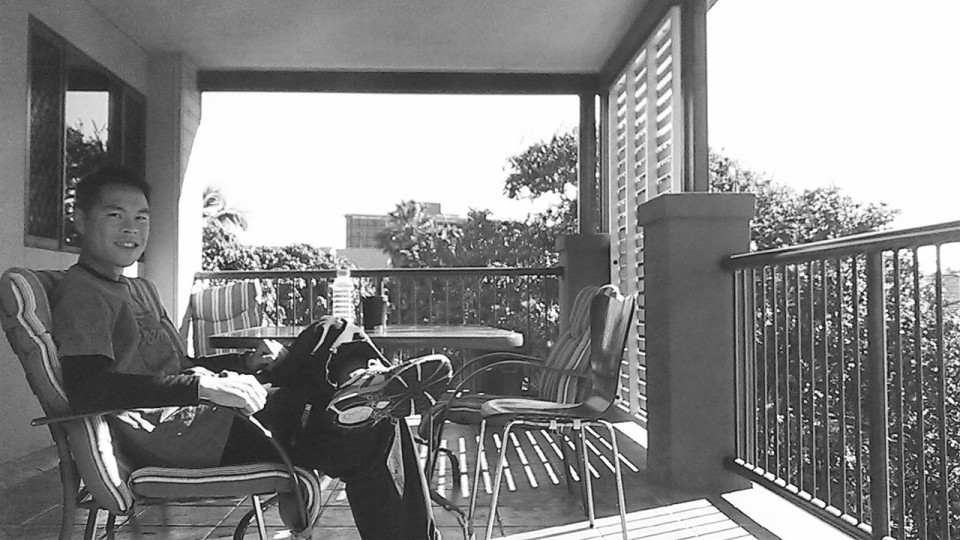A husband, and a proud father to 2 beautiful young girls aged 4 and 6, Hoong Wei was an enthusiastic basketball player in his younger days. He played for the National University of Singapore as an undergraduate, and continued for a few years after that in the National Basketball League.
But it was only through the most unlikely of circumstances that brought him to running. An avid collector of seashells, Hoong Wei accidentally stepped on a stonefish (one of the most venomous fish in the world, with sufferers reporting extreme and severe pain) while collecting data for an e-book on seashells he was writing in 2010.
That unfortunate encounter with the stonefish resulted in surgery and weeks on crutches, and he started jogging as a way to recover. The slow recovery resulted in a changed outlook towards life, as well as setting Hoong Wei up for a new hobby in running as he attempted to bounce back from this painful experience.
Today, the 33 year old Education Officer from the Ministry of Education is breaking records, and doesn’t seem likely to stop. Last year, he broke the Sundown 100km Ultra Marathon 2013 for a new course record with a time of 9 hours, 5 minutes and 34 seconds, which was over 7 minutes faster than the old record.
Hoong Wei also ran his personal best in the Gold Coast Airport Marathon (GCAM) 2013, thus qualifying for the prestigious Boston Marathon, held on April this year.
RunSociety had the chance to catch up with Hoong Wei and discuss his running experiences both locally and abroad. He also shares some advice for runners who are looking to break their own personal records.
Q: Any reason why you decided to run the GCAM’13 in Australia?
My wife encouraged me to fulfill my dream of qualifying for the Boston Marathon, and we started shopping for a relatively flat certified marathon course.
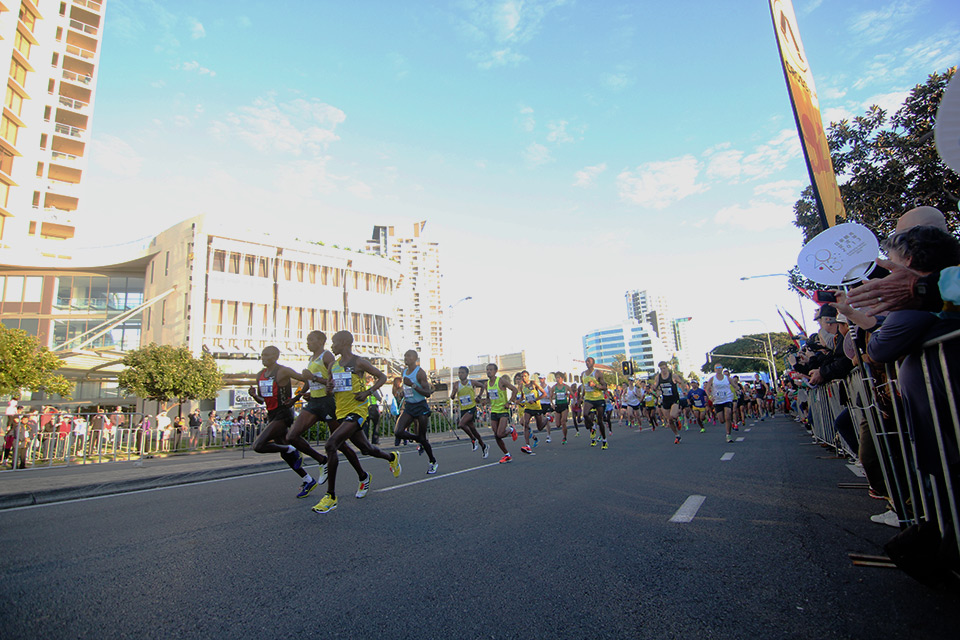
The GCAM is known for its impeccable race organization and not as crowded as many big-city races. It has a flat, fast course, and fine weather. It boasts a relatively large Singaporean contingent every year and I felt excited about meeting many other Singaporean runners in a wonderful holiday destination. The fact that it will be held the day before I turned 33 made the trip a great ‘birthday present’ to myself!
Come 2013, I surprised myself by cutting almost an hour off my 2012 marathon personal best, qualifying for the Boston Marathon by less than a minute.
Q: Could you share with us on your personal experience running in last year’s GCAM?
I left Singapore on a night flight on Friday, arrived on Saturday morning, and put up at a backpacker accommodation for about AU$60 a night.
I woke at 4am and proceeded with my pre-race nutrition and routine. The pre-race was smooth with regards to toilet availability, baggage deposit, and start pen organization. I found it a little too cold for my liking, but the extra layers soon came off as I warmed up.
The flag-off was smooth, and I stuck to the planned pace. The crowd support throughout the route was phenomenal, and I particularly liked how close the supporters could get to the runners, giving it a rather ‘community-like’ feel. The weather was great (as expected) and I managed to enjoy the seaside scenery earlier in the race before fatigue set in.
At about the 37km mark, we were hit by a strong head wind. I was getting tired, and my pace dropped despite increased effort. When I realised I had achieved the target at the finish, I was overcome with emotion.
The race was well organized from the registration, news updates, bib collection, race day support and even post-race administration (e.g. baggage collection, medals and certificates, and efficient publishing of results). However, the most meaningful part of the trip for me was getting to know many people from the local running fraternity who were there to achieve their own targets and enjoy the holiday.
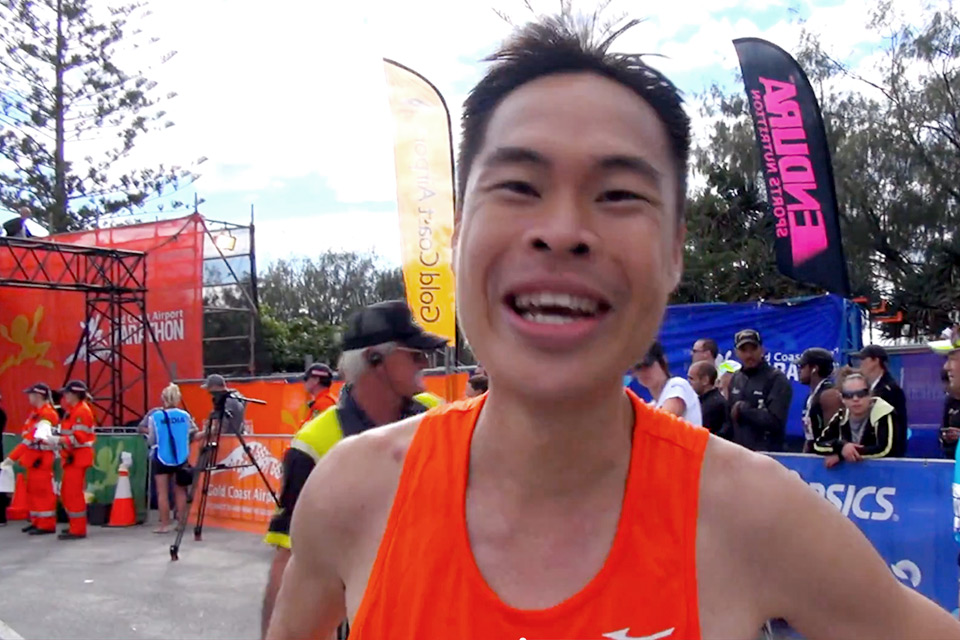
Q: Any specific training you did in the in the lead up for last year’s GCAM run?
I continued my usual training routine, which consists of easy runs between 10km and 15km daily, with a long run of at least 30km once a week.
Q: Since the GCAM course will remain largely unchanged, could you share any course-specific tips or advice for runners looking to complete the GCAM this year?
The course is relatively flat, and it would be safe to say you could hold an even pace throughout if you have a goal timing in mind. If you’re not used to running in cooler climates, bring along old clothing such as arm warmers or gloves you can start the race with and then discard along the way as you warm up.
Plan for contingencies. I understand in 2012 there was unusually hot weather, and in 2013 we experienced a strong wind at the end. Be flexible and trouble-shoot along the way!
Q: You’ve had the chance to run in different countries, and every country is unique. Are there any special memories you appreciate about each country (including Singapore!) that you’ve ran in?
I must say some of my most impressionable runs were not racing, but easy runs around the West Lake in Hanoi, Vietnam. During a holiday there in 2012, I’d get up early at 5.30am and run around the lake in the dark.
The mornings were cold, and I could not see where I was going most of the time as the pavements were not very well lit. In fact, I hardly knew where I was going, making sure to keep the lake on my left and complete a new route around it each day.
There was always a fog over the water which made the runs feel like a page out of some fantasy or science-fiction movie. Even in the dark, I was impressed that there were many people at certain parts of the lake out exercising, playing badminton, jogging and walking, almost as though I was running in a park.
There were parts of the run when I was alone and enjoying the scenery and solitude. In the cool of the morning, I’d run past fishermen returning with their catch, rice fields, and as the sun rose people would congregate on the pavements selling all sorts of produce. I found myself stopping frequently to snap photos of life around the lake with the sunrise in the background.
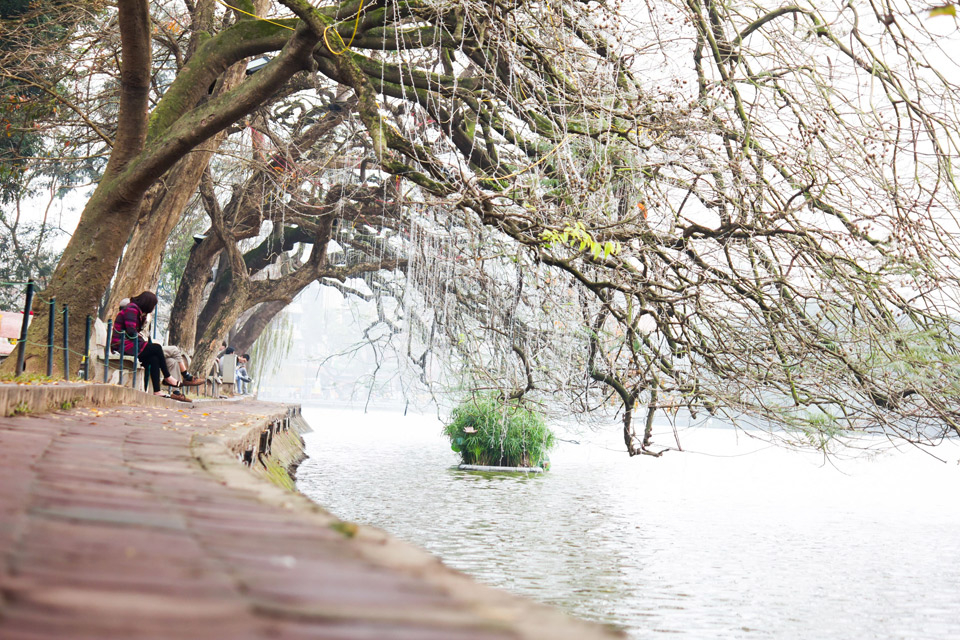
Q: People say it is pretty challenging to run an ultramarathon. But you’ve risen to the challenge last year, coming first in 2013’s Sundown Ultra Marathon, and even breaking the course record time. What are the main challenges you faced when running the ultramarathon distance when compared to running the standard 42.195km?
One of the main challenges is sticking to the pace. Many people don’t realise how much slower they have to go compared to a 10km or 42km run. I myself am tempted in ultra-distance runs to follow the crowd and go faster early in the race. I have to constantly remind myself that going slower initially will allow me to use more fat and save some carbohydrate stores for later to help me finish the race. Many runners go out too fast and deplete their glycogen stores before they reach the finish line, making the final kilometres unpleasant and painful.
I have to add, however, that one of the most beautiful things about ultra-distance races are that it’s okay to make mistakes, troubleshoot, and make amends for it later without hurting your race goals too much. For example in the standard marathon, gastrointestinal issues or glycogen depletion (i.e hitting the wall) might mean throwing my goal timing out the window or falling out to try another day.
However, in a longer race, I’ve learnt that you can expect to run into both mental and physiological problems at some point in time, sacrifice some time to address the problems, and make up for it later when you feel better. In the TNF 100 Singapore 2013, I was forced to a walk mid-way through the race when I misjudged my nutrition plan and ran out of energy. The feeling was terrible and I contemplated dropping out. However, 10 minutes after gulping down a couple of gels I felt good enough to run to the finish and still did well enough for a podium finish.
Q: Looking to the future, any other overseas events you’re heading aiming towards this year?
I am running the Boston Marathon in April and the TNF 100 China in May.
Q: What about yourself? Any milestones you would want to accomplish in 2014?
I like to run a lot, and tend enjoy it too much at times. As a result, I recognise that my recklessness has caused setbacks that prevented me from progressing even further, such as downtime due to injury or overtraining.
Hence training wise, I’d like to be more consistent with my recovery routine by factoring in sufficient recovery days, stretching and icing after runs, sleeping longer hours, eating healthily, cross-training, and trying to stay injury free. As far as possible, I want to honour the golden rule of making it to the start-line of my goal race healthy, even if it means running a little less.
Q: Lastly, would you like to share the top 3 training tips with runners who are going to the Gold Coast Marathon 2014?
Firstly, start training now if you haven’t. Crash training a few weeks before the marathon risks injury and doesn’t result in as much fitness gains as a long-term, consistent training plan. The GCAM 2014 is about 5 months away, plenty of time for you to set a long-term goal, start with a comfortable training volume, and build up slowly. The next tip is impossible without a long-term perspective.
Secondly, factor in a long run once a week or fortnightly. Running further will condition your mind and body to know what it feels like when fatigue sets in and know how to react, giving you a better chance of finishing the run strong on race day. Increase the length of these runs gradually over the next 4 months. Focus on doing it at an enjoyable pace so you can last longer, and find someone of similar fitness to run with you if it helps. Have a fueling plan, and take this opportunity to experiment with nutrition, before, during and after the run to know what works best for you.
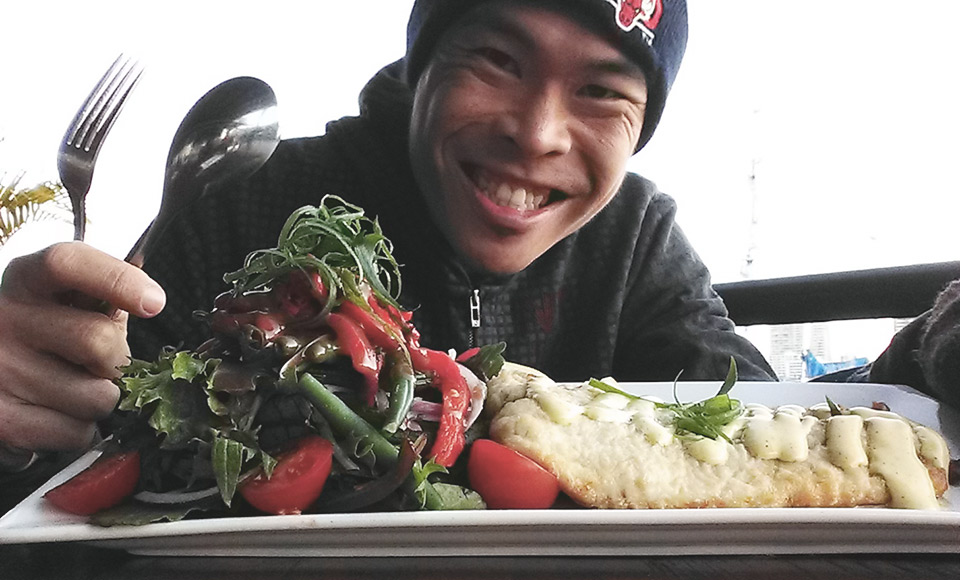
Thirdly, don’t neglect nutrition. Someone once said that 90% of ‘training’ happens when you’re not running! Healthy choices at meals not only make you feel better on a daily basis, but help you recover quickly from workouts and set you up for bigger fitness gains. Do a little research about what works for other runners in terms of recovery nutrition.
In conclusion, you’ll get a lot more satisfaction at the finish line knowing you did your best in training. Who wants to take an exam without studying for it? Racing makes training worth it, and training makes racing fun.
All the best with your preparation!



